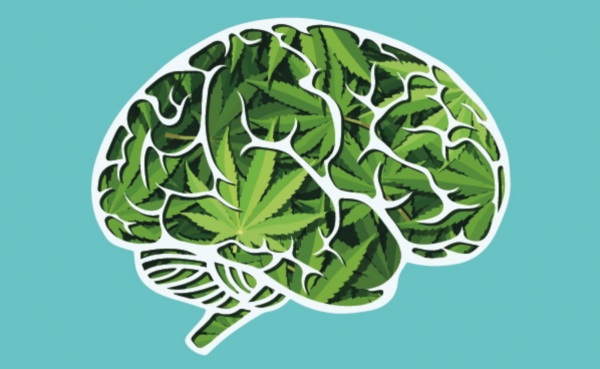Legalized in October 2018, cannabis is becoming an accepted part of mainstream society. However, researchers from McGill and the University of Oxford suggest that its effects may not be as well-understood as commonly believed. Their analysis has garnered international attention for linking cannabis use to depression and suicide risk in adolescents and young adults. According to Gabriella Gobbi, an associate professor in McGill’s Department of Psychiatry and lead author of the paper, the study’s widespread reception is partially out of concern for how marijuana usage is affecting the young demographic.
“Cannabis is mostly a drug used by adolescents and young people,” Gobbi said. “In each country we have this same trend. Everybody is very curious about Canada. A lot of countries are looking at Canada as it moves [toward legalization to see] its consequences.”
A team of 11 researchers worked on the study, which consisted of a meta-analysis of other studies looking at the effects of cannabis on depression in youth. They hand-picked 3,000 papers on the topic, covering a total of over 23,000 human subjects. The investigation, which controlled for individuals suffering from depression before having used cannabis, concluded that young adults between the ages of 18 and 32 who had smoked cannabis regularly before the age of 18 had a 40 per cent increase in risk for depression, a 50 per cent increase in risk for suicidal ideation, and a 300 per cent increase in risk for attempting suicide.
Gobbi’s lab previously researched the specific neurological effects of cannabis on developing brains in rats in 2010. Even so, Gobbi was particularly surprised at the new results showing a link between cannabis use and suicidality.
“The [link with] depression didn’t surprise me […since] some studies had already found this association,” Gobbi said. “What surprised me was the suicidality because [the link between] suicidality and cannabis was not so known. Actually, we found that, even in people not at risk of suicide before consuming cannabis, there was an increased risk.”
Following the publication of the study, Gobbi was invited to testify as an expert before the Quebec National Assembly in connection to the current Quebec government’s proposed Bill 2, which would raise the legal age to purchase and consume cannabis from 18 to 21. While not particularly in support of resorting to raising the legal age, Gobbi hopes the dangers of cannabis will be taken seriously.
“The problem is that right now, a guy who is 18 can, in one day, buy 30 grams at 30 per cent [tetrahydrocannabinol],” Gobbi said. “That is enormous. So if at least we can limit the quantity of cannabis available at this age, that would [be] substantial [….] People ask me whether I am for prohibition or legalization, but this is a bad question because, between prohibition and legalization, there are a lot of steps.”
Rather than raising the legal age, a recent proposal from the Institut National de Santé Publique du Québec (INSPQ) recommends a policy of ‘gradual access’ in which increasing amounts and different products would be made available incrementally after the age of 18.
“The omnipresence of underground marijuana sales networks and already high levels of cannabis consumption among those aged 18 and over prompt one to ask themselves if other options permit us to send a clear message without the risk of punishing or criminalizing young adults,” the report reads, translated from the original French. “The examples of Quebec’s Programme d’accès graduel à la conduite (PAGC) and certain Scandinavian countries’ graduated access to alcohol offer promising possibilities.”
According to Gobbi, misinformation about the nature and effects of cannabis continues to be widespread.
“There is a lot of ignorance about cannabis,” Gobbi said. “Cannabis stays in your brain for one week or more, so [some] people believe they are not addicted [because] they can stay away for one week [….However] the withdrawal symptoms start one week or ten days later, and sometimes people don’t perceive them [or] link them to cannabis.”








